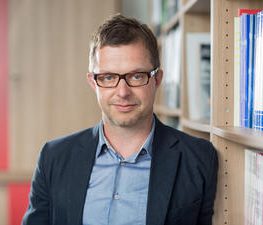Start
1 October 2019 - 12 h 30 min
End
1 October 2019 - 14 h 00 min
Address
30 Avenue Antoine Depage - 1050 Brussels (Room DC8.322 - 8th floor, Building D, Campus Solbosch of the Faculty of Psychology and Educational Sciences - Université Libre de Bruxelles) View mapCategories
Departement SeminarTowards a Psychology of Refugee Integration
Pr. Dr. Gerald Echterhoff, Universität Münster
Abstract: The successful management of refugee immigration, including refugee integration in host societies, requires a sound understanding of underlying psychological processes. I will present a framework on the Psychological Antecedents of Refugee Integration (PARI), developed in collaboration with collegues from different fields of psychology (Mitja Back, Jens Hellmann, Guido Hertel, Joscha Kärtner and Nexhmedin Morina). We argue that forcedness (i.e., coercion by push factors) and ensuing perils (risks and potential suffering during migration) are distinctive factors of /refugee/ migration. According to the PARI framework, perceptions and subjective representations of forcedness and related perils trigger specific psychological mechanisms (e.g., loss of control) that moderate integration-relevant responses to the demands and stressor of the immigration situation. We conceptualize these distinctive influences for both refugees and residents of the receiving society. Based on the identification of distinctive features of refugee migration, PARI generates novel and specific hypotheses about psychological processes predicting refugee integration. For instance, refugees’ experiences of forcedness and perils should lead to high preoccupation with the restoration of basic needs (e.g., control needs) after arrival in a host country, which interferes with integration-related activities. Conversely, residents’ perceptions of forcedness and perils may enhance empathy with refugees, but may also amplify feelings of threat. I will briefly discuss implications for policy-making and politics.


